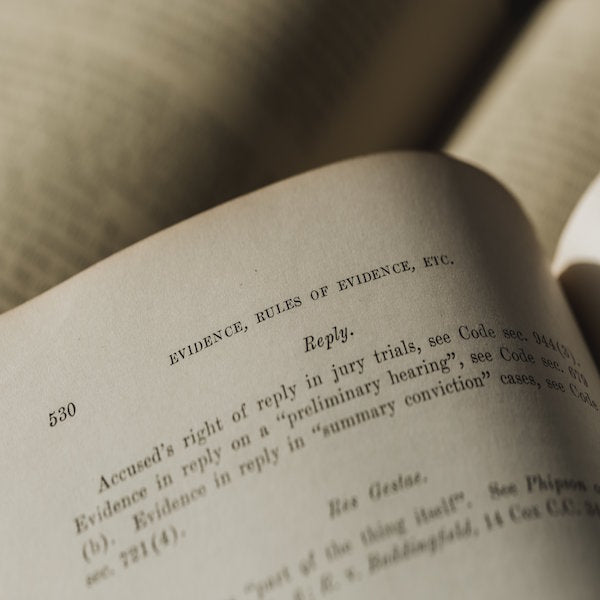
Prosecution
The actual prosecution of someone is when a person is charged with a crime and they are subsequently put on Trial. You’ll often see references such as “It was the Prosecution’s case” and that refers to the State’s case. For example, if I am the victim of a crime and I report that to the police, it is not up to me whether I take a criminal case against the person I accuse of the crime. Once I report it, it is out of my hands and the State decides whether to prosecute or not. That decision is based on whether there is enough evidence that they believe will result in a conviction. Needless to say, cases take time and money, and there are a long list of cases waiting to be heard, so it is vital that there is sufficient evidence against a person to prosecute them successfully. That is why a lot of scrutiny is placed on the work of the police as it is up to them to gather evidence in a legal manner and store it correctly and safely. We have seen in some cases, not just older cases, that Trials can actually collapse due to mistakes police made.
What is the role of a Prosecutor?
The Prosecutor has an extremely important role to play. They have to lay out the evidence for the Jury in a factual way. They open their case first. So when the Jury are sworn in and take their seats, the Prosecutor outlines to them who the accused is, what they are charged with and the case that they will hear. They will be told details of the case in what’s called an Opening Statement. This is a summary for the Jury so that they know what the case is about and what is alleged to have happened. The Prosecution then starts their case by calling their first witness. The number of witnesses vary depending on the charge itself, the evidence that is available and what the Prosecution actually has to prove.
A witness is referred to as a witness for the Prosecution if that person is called to testify (give evidence) on behalf of the Prosecution. Witnesses for the Prosecution can include, but are not limited to, the police involved in the case, the Medical Examiner who carried out the Autopsy, the victim (if the victim is alive, for example a rape or attempted murder case), any other witnesses who have direct involvement in the case. Not all witnesses are willing to testify . For many different reasons, some people do not want to be involved in the case. A good example of this is in relation to gang related crimes. Some people fear if they testify then they will be punished afterwards. A Judge can compel a person to testify.
When a witness is about to give evidence, they are sworn in and take their seat, normally close to the Judge and at the top of the Court room. The Prosecutor then asks them a number of questions. It’s vital that a Prosecutor does not ask leading questions as that can, and does, cause a mistrial. A leading question is when a question is phrased is such a way that prompts the answer that the person asking the question wants.
When the Prosecution has asked the witness all of their questions, the Defense has an opportunity to ask the witness for the Prosecution their own questions. This is known as cross examination. This provides the Defense with an opportunity to challenge everything the witness has said and try to pick holes in their testimony. The Defense can decide not to ask any questions. This may be due to the evidence that the witness gave being trivial to their case or they feel it doesn’t paint their client in a bad light or if they feel that asking more questions can cause more harm than good. It is, after all, up to the Prosecution to prove their case beyond a reasonable doubt. The Defense are not required to prove their client’s innocence.
When the Prosecution rests their case, the Defense can then call their witnesses and the Prosecution can cross examine them. When the Defense rests, the Prosecution will address the Jury in what’s known as a Closing Statement. They will recap on all the evidence that was heard. The Defense will also have the same opportunity. After that, the Judge will give their Judge’s Charge. This is an address to the Jury to highlight some legal issues that they need to know and the Judge will give them instructions. They then deliberate.
The role of the Prosecutor is central to the case. It’s important to note they act for the State, not for the victim.
Leave a comment
The comments below have not been moderated




Chilling Crimes
Author